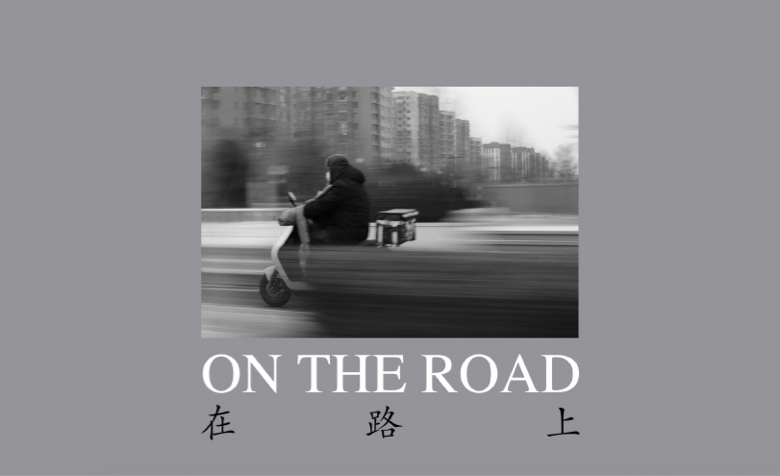
On the Road……
China is now ruled by relentless market competition. It is against this backdrop that ruthless working hours are common for many workers. Despite benefits and opportunities brought by the advent of the Internet era, exploitation also comes along. Nowadays, the comfort of our daily life depends on tens of thousands of cheap laborers in China working day and night. Takeaways, flash delivery, Didi designated drivers (China’s Uber), and express package delivery, all the convenience of our lifestyle that the Internet provides us, are built on countless but seemingly faceless workers, whom we may never know. Their labor cost can be kept low because they are part of newly rising gig economy, in which only short-term contracts are needed for these workers with no complete package of social benefits. Despite of this, gig workers’ often work long, dull, and hard hours; yet they endure it without any complaint being heard because they aim for a better life and eager to join the middle class.
Before I know it, the convenience of the gig economy has become an integral part of my life. Every day, couriers with a rainbow of different company uniforms stream through my compound. Although each courier is an individual person with his own story, in my mind, they are as if the same person without a face. When I entered high school and became interested in economics, I came to realize the significance of the gig economy and its amazingly fast growth. It has brought great convenience to consumers and completely changed people's way of life; it has also brought unprecedented opportunities to profit-seeking capital and reward capitalists with rich returns; it has created massive employment opportunities, because of which gig workers quickly rose into a new social class of their own. It is fair to say that it does not only fundamentally chang our way of life, but also our society as a whole.
I want to know the protagonists of this change - those unrecognizable faces under the helmets and those seemingly distant figures who made this change possible. It is their hard work that drives the rapid development of the gig economy. They are not just data and figures on a spread sheet, not just helmets and colorful uniforms, but are real people--- each has his or her own joys and sorrows, dreams and pursuits. I want to get to know them and explore the stories behind them. What is it that inspires them to work so hard under barely bearable working conditions? Does the new economy benefit the workers to the same extent as it does to capitalists and consumers? In a highly competitive and innovative business environment, what are the gig economy workers’ concerns and fears about their future?
So, I grabbed my camera and focused my lenses on this group of people, who are so vital to the comfort of my daily life but of whom I know so little. I started out by photographing a delivery driver who sends packages to my compound every day, and then shifted to take photos of takeout guys, flash delivery men, and Didi drivers. I accompanied them through their brutal working hours, followed them into their everday lives and learned about their daily struggles and joys.
This experience opened my eyes and mind. I would like to share what I saw with my exhibition audience. I hope that through this exhibition, more people will pay attention to this special group of people. Although their hard work benefits everyone of us, they still largely remain unseen and unheard of in society. The success of the new rising economy in the Internet era is built on the relatively cheap labor cost of these gig workers. They are willing to accept intense workload, long working hours, and harsh working conditions in return for lackluster pay because they are from less developed rural areas and the money they earned is considered “a lot” by their rural standards. That is why they barely use the money they earned on themselves but rather save and send money back home. Through following them around in many places under various weathers, I experienced the hardships of their work and life. I learned they suffered a much lower living standard that can hardly meet the so-called basic Beijing standard. It is my hope that one day the gap between China’s development in rural and city areas will be eliminated, and the dividends of the new gig economy will benefit everyone more equally.